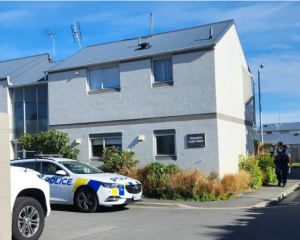
Ministry of Education figures showed universities' course completion rates dropped from a high of 89 percent in 2020 to 86 percent last year, the lowest rate since 2014.
For Pacific students the figure was 69 percent, but annual reports showed it fell by as much as nine or 10 percentage points at some universities to sit as low as 61 percent.
Māori students' pass rate was 80 percent and annual reports indicated it had fallen at about double the rate of non-Māori, non-Pacific students since 2020.
Universities and student representatives blamed the pandemic, increased online learning and the cost-of-living crisis for the decline.
Auckland University Students' Association Pacific Island student officer David Tuifua said the effect of falling pass rates was obvious.
"There's a space on campus that is seen as a safe haven for a lot of our Pacific students. As the years go by you see the students who did usually come up to this space not come up, to the point where they're just not studying anymore."
He said the pressure to support family was a big factor for many Pacific students.
"For a lot of them it's just due to family and the rising living costs and everything else within the economy. It's sad that our students feel the need to sacrifice their education to make ends meet for their family."
Te Mana Ākonga / National Māori Tertiary Students' Association tumuaki Rosa Hibbert-Schooner said Māori students lost a lot of their usual on-campus support in the past couple of years.
"Having to move online and move into those spaces that aren't as welcoming to Māori. We're used to that communal, that whanaungatanga and that cohort effect. Unfortunately a lot of the universities have lost that big cohort of people coming through and supporting one another."
Hibbert-Schooner said universities must include Māori in the design and operation of their student support systems.
Meanwhile, the University of Waikato noted a big difference between students who gained University Entrance (UE) under eased entry requirements and those who would have gained entry without the change.
The university's annual report said school-leavers who met the standard UE requirements had a course completion rate of 85 percent, but those who only met the amended standard had a pass rate of 69 percent.
'We're talking about slightly lower success rates'
Waikato vice-chancellor Neil Quigley told RNZ there appeared to be two reasons for the lower pass rate.
"One is just the level of disruption that those students experienced as they were going through the last few years of high school, so probably no surprise that they weren't as well-prepared. And at the same time they just haven't completed as much of the background learning that we would normally expect of students coming into university."
Quigley said the achievement difference had continued this year.
"While in one sense we can think of the pandemic as being over, in another sense the learning disruption that occurred during the pandemic will continue to have an impact on the students and the learning and the way they achieve at university through quite a considerable period of time."
However, Quigley said it was worth lowering the UE standard because most of the students it benefited had passed their courses.
"We're talking about slightly lower success rates, but we're still talking about many students who have succeeded. If we hadn't let that cohort into university then we would have had a lot of students who were capable of succeeding that we held up for another year."
Impact of cost-of-living crisis, online learning
Universities New Zealand chief executive Chris Whelan said universities were looking very closely at Māori and Pacific students' pass rates.
"We do know that some Māori and Pacific were disproportionately more likely to be going home to environments where perhaps they didn't have as much of the technology available to them to be able to carry out their studies successfully."
Whelan said universities provided extra support but they could not reach every student, especially when they were studying remotely from their homes.
He said students were less likely to continue their studies if they did not complete 80-90 percent of their credits in their first year.
Otago University Students' Association president Quintin Jane said the cost-of-living crisis had harmed pass rates.
"We have seen a lot more students in financial hardship who have been picking up extra work, taking on extra jobs to try and make ends meet which naturally is going to impact on their study," he said.
"You're working 15 to 20 hours a week - that will impact your grades."
Victoria University Students' Association president Jessica Ye said some students struggled with the increased use of online learning.
"Covid has been really difficult for students in general and that has had a really disproportionate impact on different student communities. Covid has really tested the way students learn as well and online learning has been really difficult. It's been a relatively unsupported environment for academics to teach to students."
AUT's annual report said course completion rates declined for all groups of students last year.
"The cumulative effects of multiple years of disrupted study, interrupted transition and university preparation, and the pandemic's mental and physical toll can be seen in these results," it said.
The University of Canterbury's annual report showed pass rates had fallen slightly and the pandemic was to blame.
"The reasons for this are assessed to be continued impacts from the pandemic as students struggled with illness, temporarily shifted to online learning, and experienced flow-on impacts from disrupted learning in their final years at secondary school, as well as a strong employment market."












